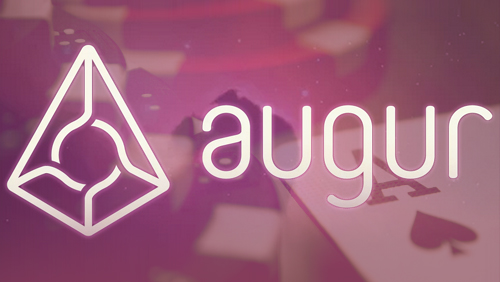 Here’s a blockchain-based prediction market that could potentially become the greatest gambling platform in history.
Here’s a blockchain-based prediction market that could potentially become the greatest gambling platform in history.
Forget crystal balls. There’s a new platform that will give everyone a chance to see the future and bet on it.
The Augur project, coming this fall, will let participants choose any future event and wager real money on it. Its software will set the odds, collect the bets and distribute the winnings, with only an estimated 1 percent of the pot going into system upkeep.
Gambling fans, however, won’t be able to play roulette or poker, but Augur has great potential for sports betting.
Lead developer Joey Krug didn’t use the word “gambling” to describe Augur during an interview with Reason, saying his team preferred it to be called a “prediction market.” Through its website, the company noted a prediction market is similar to stock market, but it exists to determine the likelihood of an outcome of a future event, such as weather or even sports.
Another novel thing about the platform is that it operates as a decentralized peer-to-peer marketplace, meaning it won’t be controlled by one person or group nor will it operate using a single computer network. The system only accepts Bitcoin and other peer-to-peer cryptocurrencies. And if it becomes successful—and everyone is betting on it—regulators won’t find a company to sue, computers to seize or even a CEO to lock up.
How does it work? Much like Bitcoin, Augur’s software will run on a “blockchain,” or a shared trading database run by its users but it will also utilize a new project called Etherium, which will distribute Augur’s software and processing power to hundreds or thousands of computers. So if someone wants to destroy Augur, he will literally have to unplug the computers of those participating in the blockchain.
Krug and his team are hoping Augur will become the Google for future events. But it’s also interesting to note that this platform could potentially make waves in the gambling industry—a sector plagued with government restrictions and high taxes, among other things.
Augur still has a lot on its plate. Sports betting is still illegal in some states, while the Commodity Futures Trading Commission (CFTC) is keeping a tight rein on prediction markets. In 2012, CFTC sued InTrade to prevent it from accepting bets from customers in the United States. A year later, the Dublin-based prediction market shut down due to “financial irregularities.”
CFTC and the Securities and Exchange Commission (SEC) also slapped online binary options trading outfit Banc De Binary with civil lawsuits in 2013, saying the Cyprus-based company violated the U.S. ban on off-exchange options trading while also operating as an unregistered Futures Commission Merchant from 2011 to 2013.